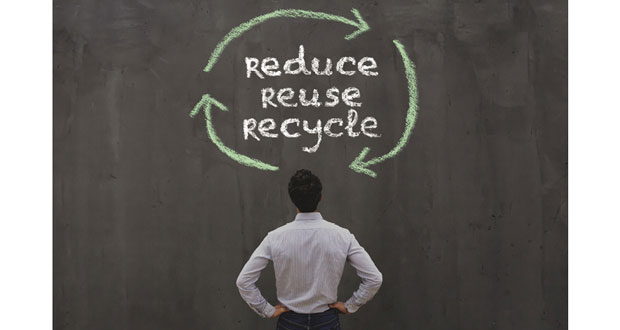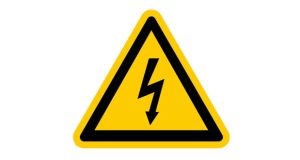Kiran Kachela, the Founder of Continuous Improvement Projects explains the company’s ‘Think green, go Lean!’ approach to sustainability in FM
At CI Projects, we have been paying close attention to the Circular Economy and embracing sustainability in our fight against waste. We aren’t the only ones. Most of us working in FM will be aware that clients are increasingly looking for environmentally sustainable solutions, and companies that offer that will have an edge. But all too often we see the mindset that favours disposability so long as it is the cheapest option. It does require a mind shift to redefine value to include sustainability and waste.
Here’s an excellent example. One of the team from CI Projects was in a client meeting recently, where a discussion about the maintenance schedule of fire extinguishers and fire blankets was taking place. Every six months, fire blankets need to be taken out of their covers, unfolded, inspected then refolded, put back in the covers and repositioned, or any damaged blankets removed and replaced. All of this would be documented and logged. A fairly standard maintenance task. However, it was pointed out that it was cheaper to replace all the fire blankets, regardless of whether they needed replacing, than to carry out this maintenance, and not just with fire blankets, but a lot of other assets too.
This raises a very interesting and important question about value. How do you determine value in this example? It isn’t as simple any more as viewing it in terms of monetary cost, or even in terms of “efficiency”. Once you introduce concepts of waste and reuse into this scenario, there is more thought needed.
CIRCULAR ECONOMY
These are the issues that the Circular Economy hopes to address, by reusing instead of disposing. The adoption of a circular economy offers considerable economic benefits; Defra calculates that UK businesses could benefit by up to £23 billion per year through low cost or no cost improvements in the efficient use of resources, while McKinsey estimates that the global value of resource efficiency could eventually reach $3.7 trillion per year.
But putting that into action in the FM world, where the bottom line is still almost always monetary, isn’t straightforward. But it can be done. Understanding that eliminating waste does not need to be a choice between monetary value and caring for the planet, but that both can be included in your definition of value, does require some creative thinking and some re-evaluation of ways of working.
Since Continuous Improvement Projects was founded in 2012, we have been using the principles of Lean to eliminate waste. Lean is a problem solving and business improvement methodology. It provides a way of optimising people, resources and business processes. At its centre is the identification, removal and prevention of waste, which is defined as anything that doesn’t add value. When combining Lean with environmental awareness, we achieve a Lean-Green approach that acts as a powerful vehicle for change.
In the fire blanket example, using Lean, we needed to define the problem. It turned out the crux of the problem was that the inspections were carried out by engineers, who were great at engineering but not so great at neatly folding blankets so they could easily go back in their covers.
Could the manufacturer make them easier to inspect and refold, or could maintenance staff be taught a better way of doing it? Do inspections need to be carried out by engineers? Could second hand fire blankets be donated and reused? What we didn’t do was just accept and assume that the best option was to throw away a thousand unused blankets every six months, but nor did we just accept the inefficiency that had been identified.
THINK GREEN CAMPAIGN
Over at CI Projects, we produce waste, the same as everyone else, sometimes it’s unavoidable. But I’ve realised we are already using Lean to develop a strong culture of continuous improvement and achieve sustainable change that lasts, it’s at the core of what we do.
The Lean Green approach promotes a Circular Economy and is a new way of doing things that brings business benefits, as well as positive social and environmental impacts. Developing the philosophy of the Circular Economy and environmental sustainability into our Lean approach, gave us the Think Green, Go Lean campaign that we recently launched. The aim is to design out waste and reduce, reuse and recycle what we use. Waste is usual a result of poor design. We must review the end-to-end value stream to identify, remove and prevent waste. By changing our mindset to view waste as a design fault and being open to changing our behaviours and processes, we can avoid waste in the first place.
We looked around to see what tools were available to help companies use a Lean method to work toward a more sustainable and less wasteful way of working and we didn’t find much, so we developed our own. That is why we are releasing a whole host of useful tools, videos and live events for free over the coming months. These will help you to not only identify where waste is hiding and start to eliminate it, but also measure your successes. Like a lot of people, we genuinely care about reducing waste, and rather than just talk about it, we want to share ideas that work so that we can continue to learn and improve.






